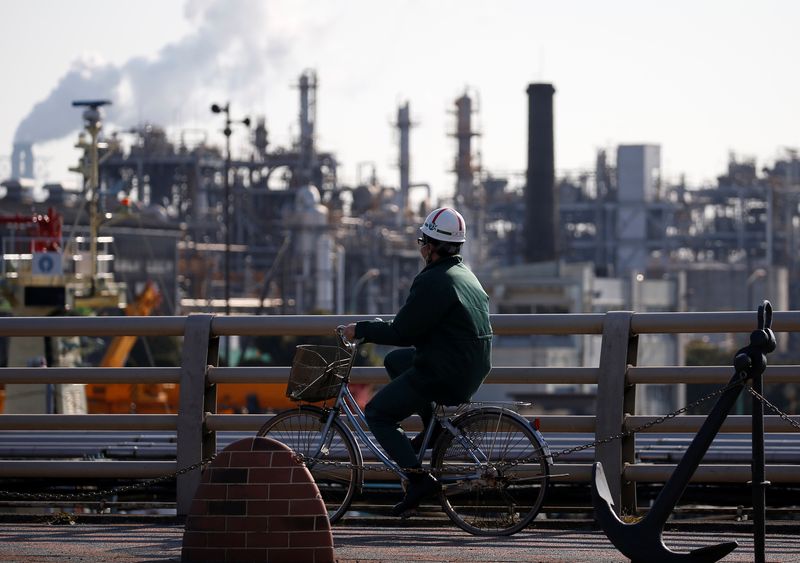By Daniel Leussink
TOKYO (Reuters) - Japan's factories ramped up output at the fastest pace in more than nine years in June as disruptions due to China's COVID-19 curbs eased, a welcome sign for policymakers hoping the economic outlook will improve.
Separate data showed retail sales rose for the fourth straight month in June, supporting the view that rising consumption helped the economy return to growth in the second quarter after contracting in January-March.
Factory output surged a seasonally adjusted 8.9% in June from a month earlier, posting the biggest one-month rise since comparable data became available in February 2013, official data showed on Friday.
The advance was largely due to the lifting of a strict COVID lockdown in Shanghai, which gave a tailwind to Japanese output of motor vehicles, electrical machinery and electronic parts and devices.
"A huge 14.0% month-on-month rebound in car production drove the increase as parts shortages resulting from the Shanghai lockdown eased," said Marcel Thieliant, senior Japan economist at Capital Economics.
While the advance was bigger than a 3.7% gain expected by economists in a Reuters poll, a government official said downside risks for output remained as parts supply delays lingered.
The data comes a day after Toyota Motor (NYSE:TM) Corp said it produced 793,378 vehicles globally in June, slightly above a target it had cut twice and capping a quarter that saw the company slip 9.8% behind its production plan.
The world's largest automaker by sales has struggled to meet its global production goals in recent months due to chip shortages and disruptions caused by the lockdowns in China.
"The global economy and especially manufacturing are clearly slowing down. But Japanese production hasn't normalised yet," said Takumi Tsunoda, senior economist at Shinkin Central Bank Research Institute.
"Its recovery momentum has further to go as supply constraints ease."
The government upgraded its assessment of industrial production, saying it was moving back and forth.
Manufacturers surveyed by the Ministry of Economy, Trade and Industry (METI) expected output to extend its recovery by 3.8% in July and 6.0% in August.
RISING PRICES
Separate data showed retail sales were weaker than expected, rising 1.5% in June from a year earlier, compared with a median forecast for a 2.8% gain in a Reuters poll.
That gave weight to the view that private consumption, which makes up more than half of the economy, held up in the second quarter.
Growing inflationary pressures and a recent surge in COVID-19 infections, however, could lead households to tighten purse strings over the coming months, according to Tsunoda. That would be bad news for Japan's economic recovery.
Tokyo's core consumer prices, which exclude volatile fresh food but includes energy costs, rose 2.3% in July from a year earlier, overshooting the Bank of Japan's inflation target for a second month.

"Prices are expected to continue rising over the summer months, which will likely be a factor that will weigh on consumer sentiment," said Tsunoda.
The jobless rate, meanwhile, stood at 2.6% in June, unchanged from the previous month, while an index gauging job availability was 1.27 in June, slightly higher than 1.24 in May.